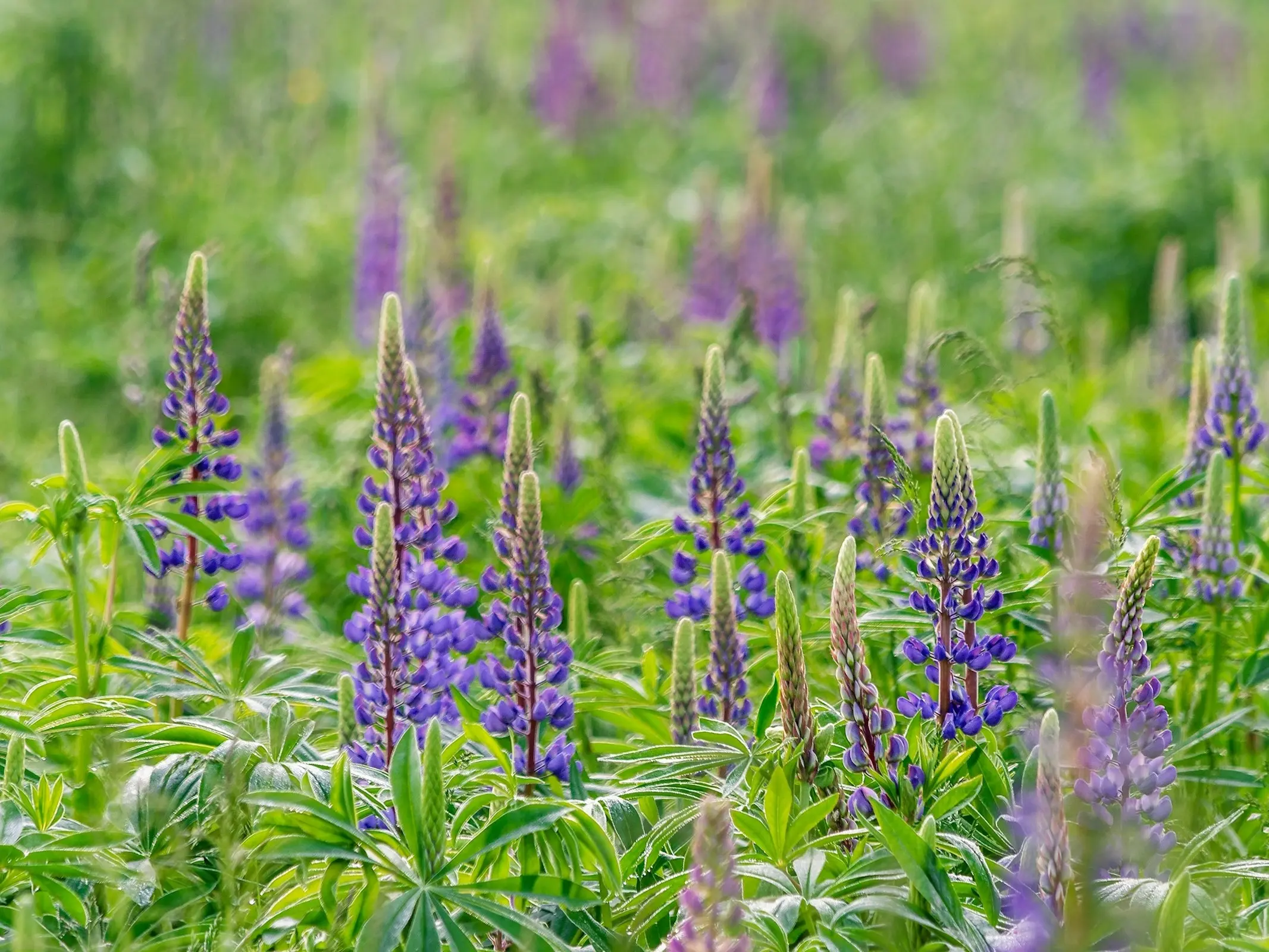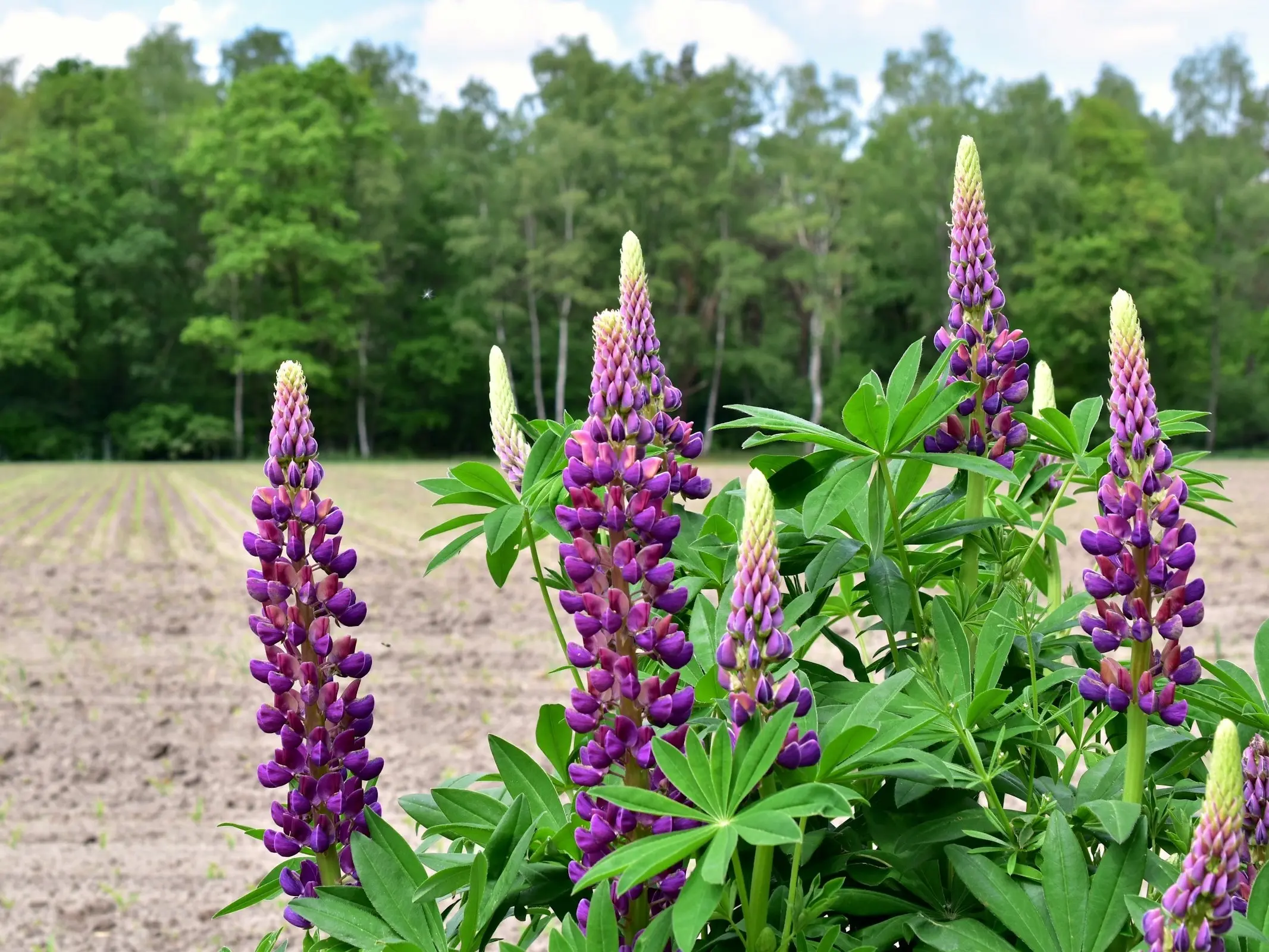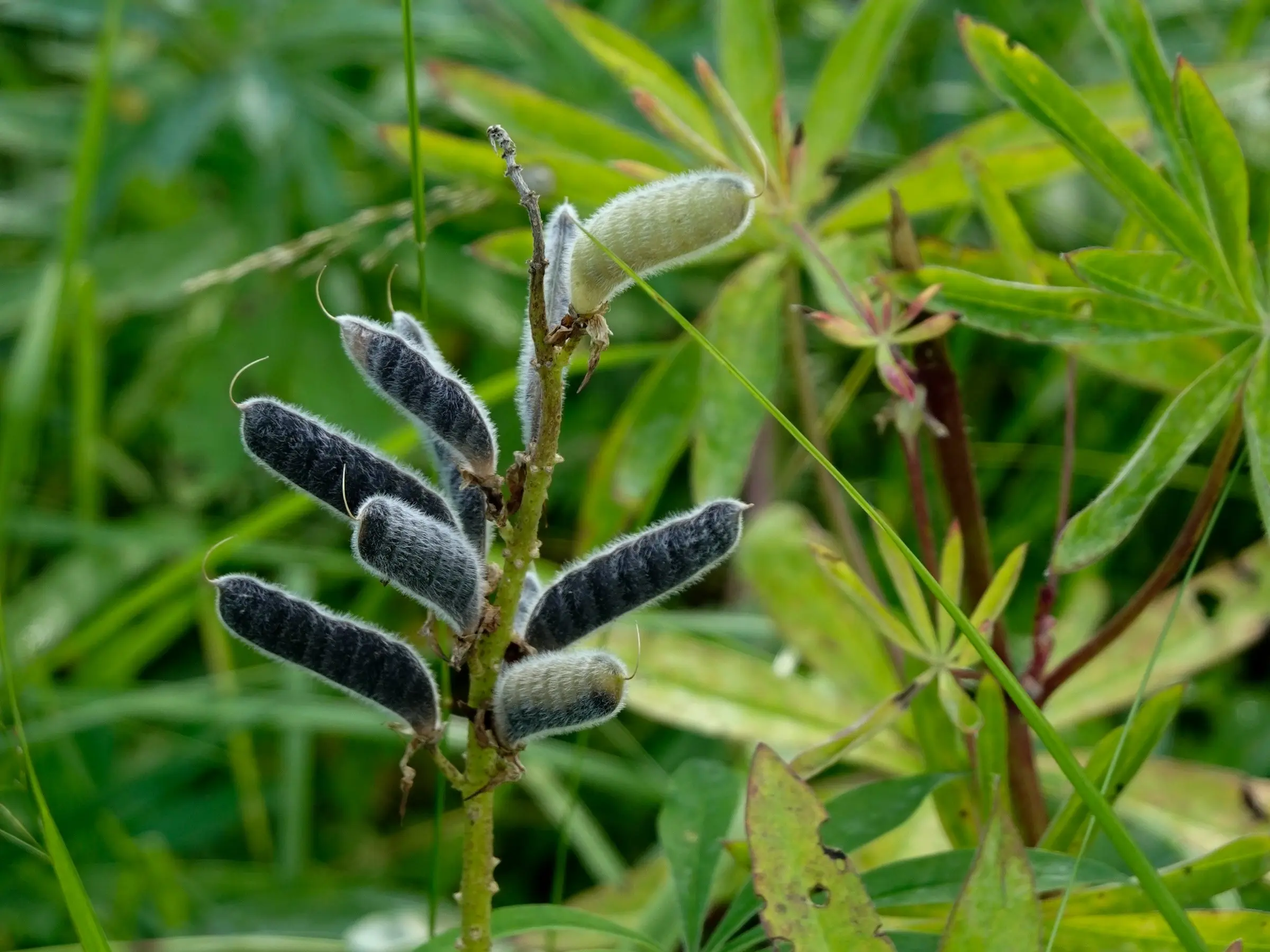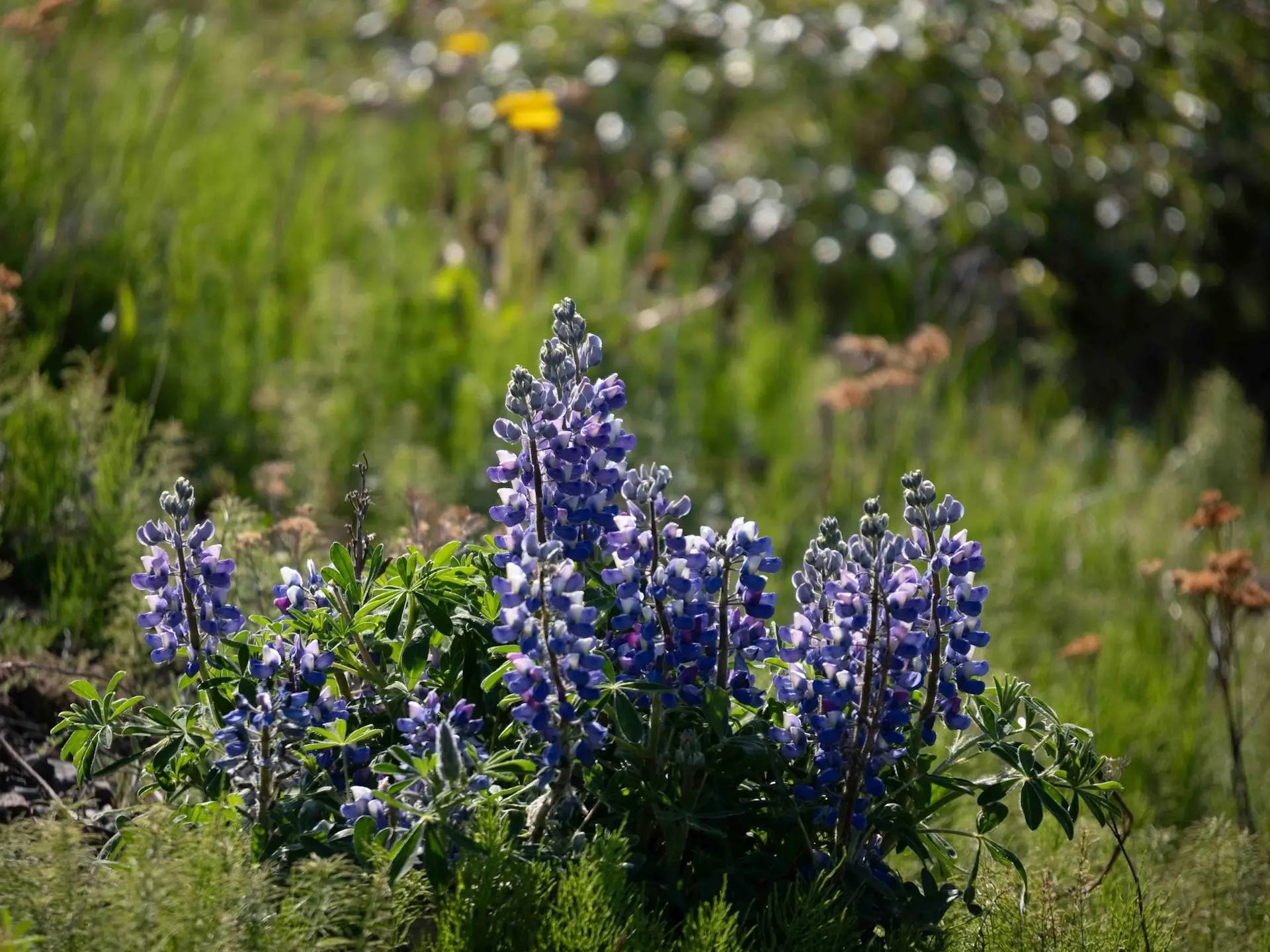
Names
Lupinus perennis, Lupin, Bluebonnet, Quaker-Bonnets
Description
Perennial that grow up to 30 inches. Leaves grow alternate with hairy segments. Flowers are blue, purple, white, magenta or dual colored. Fruit grows in fuzzy, pea-like pods.

Concern Level
Only during drought conditions, unpalatable.
Toxic Parts
All parts of the plant are toxic, especially the pods and seeds. Toxicity can vary by season.

Symptoms
Occur within an hour to a day of ingestion, trouble breathing, changes in behavior, tremors, nervousness, depression, lack of coordination, birth defects, coma, death.
Danger
Contains d-lupanine alkaloid which affects the nervous system. Can be fatal

More Information
*It should be noted that we are not veterinarians. This information is written specifically for horses and should be used for reference purposes only. If you think your horse has eaten something toxic call your vet right away.